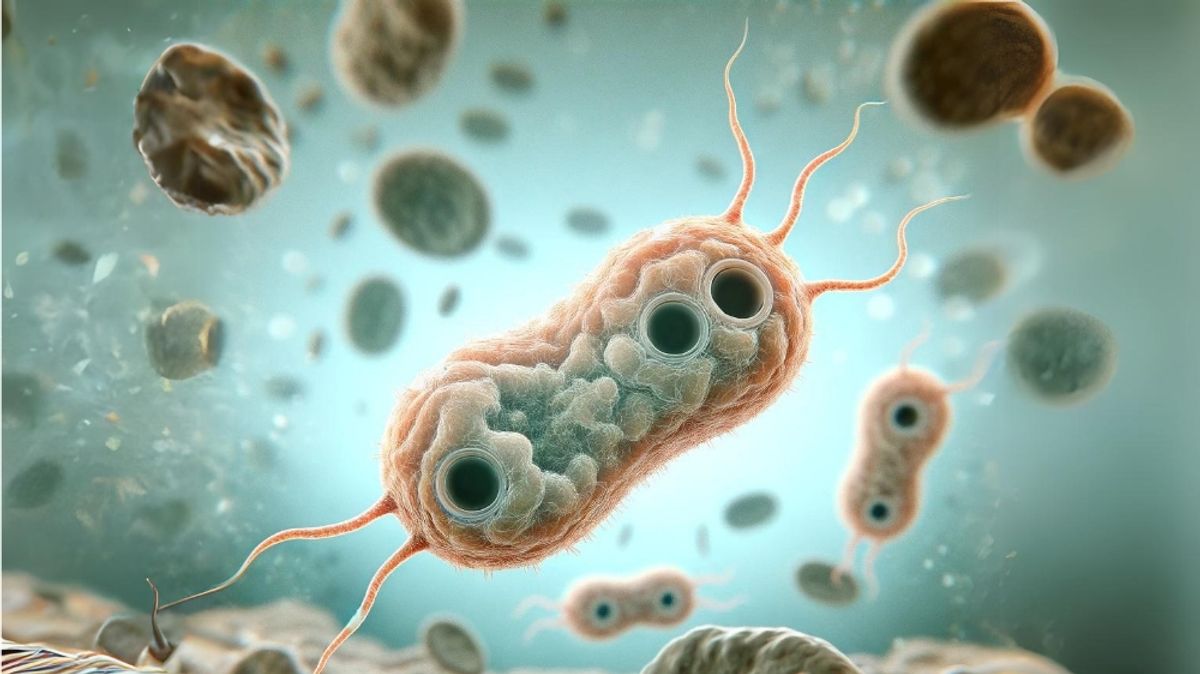
Key facts
- Cryptosporidiosis is a bowel infection caused by a parasite.
- You can catch it from infected people or animals, or from contaminated food or water, including swimming pools.
- It usually gets better by itself, but it can cause dehydration.
- It can be dangerous for people with a weak immune system.
- Hand washing and good hygiene can prevent it from spreading.
What is cryptosporidiosis?
Cryptosporidiosis (sometimes called ‘crypto’) is a bowel infection. It is caused by a parasite called cryptosporidium.
This parasite can infect humans and animals. It lives in their faeces (poo) from when they first get sick until a few weeks after they get better.
What are the symptoms of cryptosporidiosis?
Cryptosporidiosis is a type of gastroenteritis. Symptoms can include:
- watery diarrhoea
- cramping and abdominal pain
- fever
- nausea and vomiting
- low appetite
- dehydration
Some people don’t have any symptoms.
Cryptosporidiosis usually gets better by itself. It can take days or weeks, but not longer than a month. However, if you have a weakened immune system, your symptoms could be severe and continue for months. Occasionally, people can die from cryptosporidiosis.
How could I catch cryptosporidiosis?
You can catch cryptosporidiosis if something contaminated with infected faeces gets into your mouth.
This could happen if you:
- drink water or eat raw food contaminated with cryptosporidium
- swim in contaminated water — in the sea, lakes, rivers or swimming pools
- have contact with someone who is infected, or touch objects that they have touched
- have contact with infected animals or their faeces
- have sexual contact with someone who is infected
- drink unpasteurised milk or dairy products
The parasite can even survive in swimming pools with chlorine. Outbreaks can occur from contaminated public pools.
Am I at risk of catching cryptosporidiosis?
You are at higher risk of catching cryptosporidiosis if you:
- are a child who goes to child care
- work in child care or health care
- travel to a developing country
- work with animals
- are a male who has sex with males
- drink water straight from natural sources
How is cryptosporidiosis diagnosed?
Cryptosporidiosis is diagnosed from a stool test. It is a notifiable disease, which means that it must be reported to the health department.
How can I treat cryptosporidiosis?
Most people don’t need medicine to treat cryptosporidiosis.
It’s important to drink lots of fluids so you don’t get dehydrated. Drink water, an oral rehydration solution or diluted juice. If you are breastfeeding, you should continue to breastfeed your baby.
Don’t take medicines to stop vomiting or diarrhoea unless your doctor tells you to.
When should I see a doctor?
See your doctor if you:
- are vomiting and can’t keep fluids down
- are dehydrated
- have a fever or severe abdominal pain
- see blood in your diarrhoea
- are not getting better
- have a weakened immune system
How can I avoid infecting other people?
If you have cryptosporidiosis, take the following precautions:
- Stay home from child care, school or work until you have had no diarrhoea for at least 24 hours. If you work in child care, health care or the food industry, wait at least 48 hours.
- Don’t prepare food for other people until you have had no diarrhoea for at least 48 hours.
- Wash your hands carefully after going to the toilet and before handling food.
- Clean objects touched by vomit or diarrhoea with disinfectant. Wash clothes and sheets in hot water.
- Don’t go swimming until you have had no diarrhoea for at least 2 weeks.
- Don’t share sheets or towels until you have had no diarrhoea for at least 2 weeks.
How can I avoid getting cryptosporidiosis?
Good hygiene
Wash your hands carefully with soap and water after going to the toilet, changing nappies, caring for pets, gardening or touching animals. You should also wash your baby’s hands after nappy changes.
Wash your hands before you eat or prepare food. Wash or peel fruit and vegetables. Never eat or drink unpasteurised dairy products.
Have safe sex, if you are sexually active.
Be extra careful if you have a weakened immune system. Wear disposable gloves if you can’t avoid touching something that could be contaminated.
Swimming
Try not to swallow water when you go swimming. Don’t swim in natural water sources if there has been heavy rain in the past week.
Travelling
If you are travelling in a developing country, don’t drink tap water or drinks containing ice. Drink bottled or boiled water. Only eat fruit and vegetables that you can peel and foods that are well cooked. It’s best not to eat street food.

